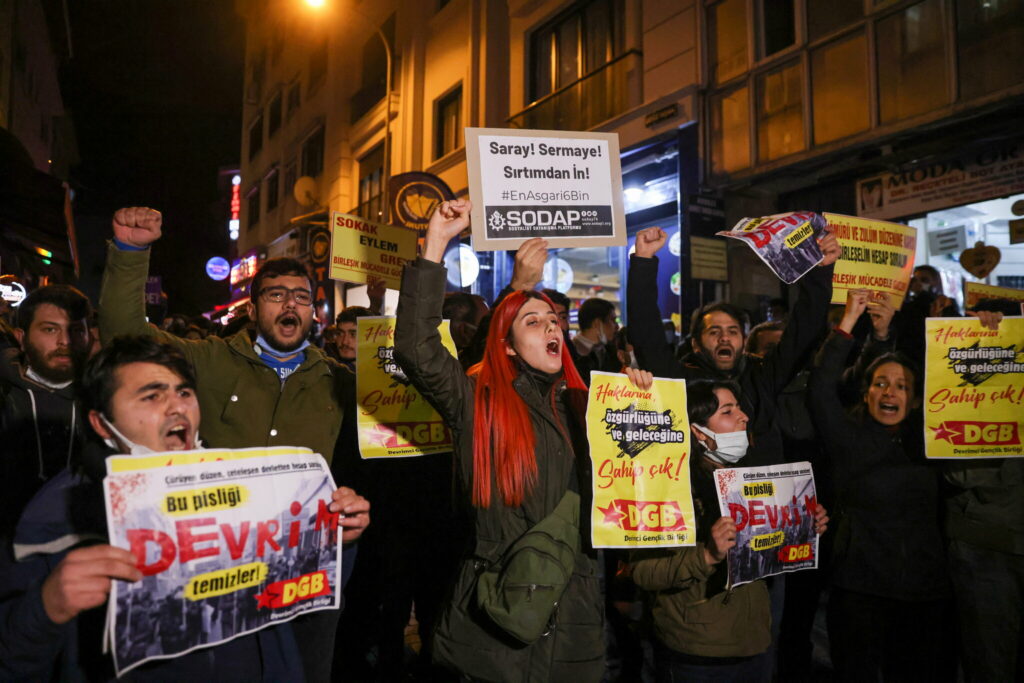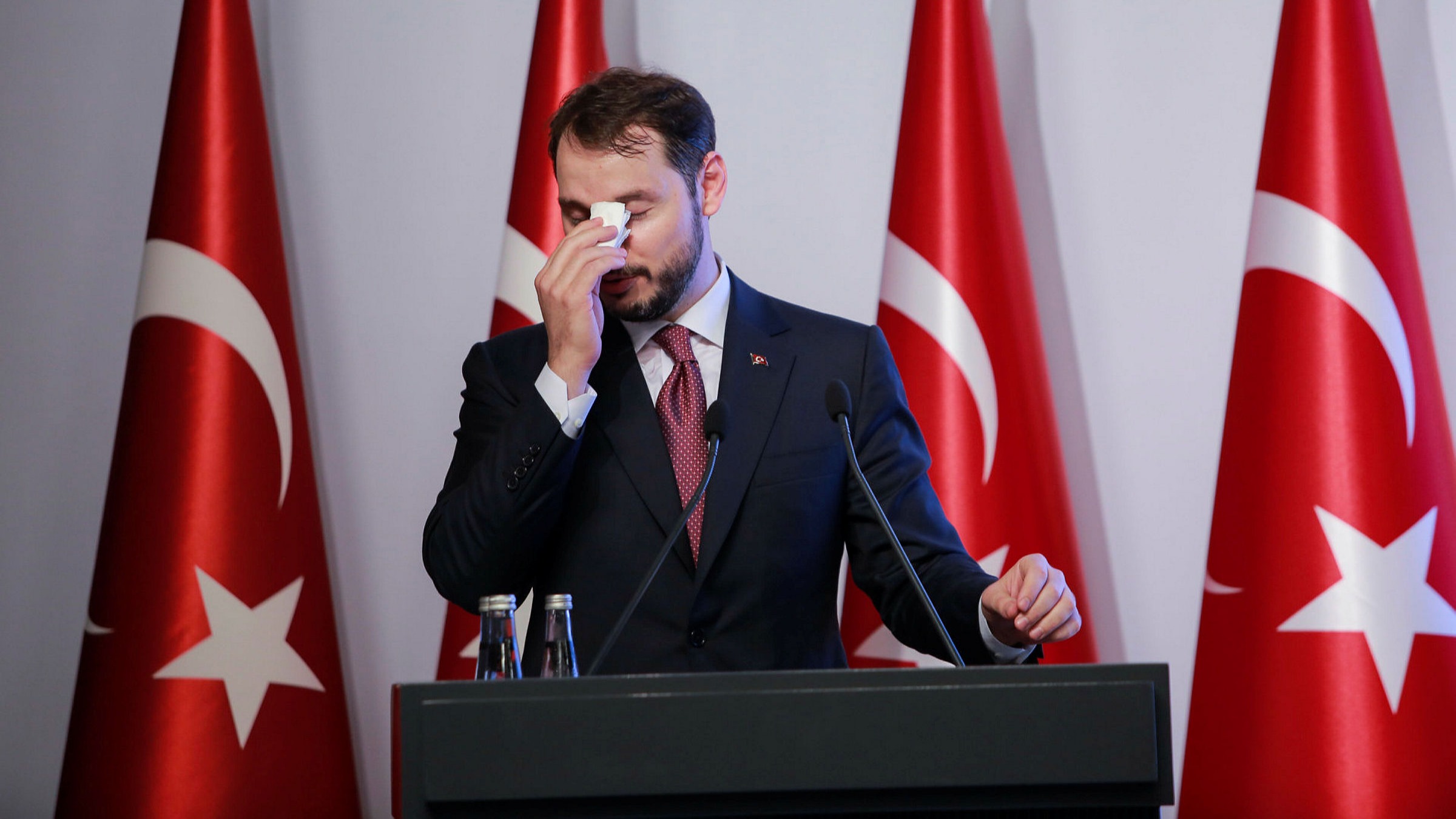Turkey’s Inflation Crisis – Yeknaz T
Turkey, the largest economy in the Middle East and the 20th biggest in the world, has been hit by two sharp contractions in as many years and its currency has shed two-thirds of its value since mid-2018. The country is now going through a detrimental currency crisis. The collapse in the lira’s value — down by about a fifth over the past two weeks, has caused strong resentment and discontent in the public sphere as people protest that their money has no value. Sporadic protests have broken out around Turkey and the opposition parties have called for a series of rallies to demand a change of government after the lira crashed sharply last week. The Turkish lira has lost as much as 45% of its value this year, making ordinary citizens poorer and essential items almost impossible to buy.

Countless people have been detained for joining street protests. The police detained 70 people in several districts of Istanbul last Wednesday who were protesting the government’s management of the economy, after a record drop in the lira the day before. The Confederation of Progressive Trade Unions issued a blunt statement on Wednesday. “That’s enough. We want to make ends meet,” it read. “Unemployment, high living costs, price increases, and bills are breaking our backs.”. Its undauntable that if Turkey fails to solve their economy crisis, they will be faced with heavier problems in the functioning of society as shortages are emerging, including in imported medicines and medical equipment, and even at bakeries, a loaf of bread still sells at 2.5 liras, but bakeries are complaining that their costs are closer to 4 liras a loaf, this is outrages for the price bread used to be before the crisis.
Most significantly, Farmers, too, have been hit hard, with the cost of fertiliser going up too rapidly for them to purchase it. Official statistics say prices of fertiliser are up 72 percent compared to last year, but in markets it has been even worse, with prices doubling or tripling in a year, depending on the type of fertiliser.
The president Erdogan insists on blaming outside forces for the drop in the value of the lira. But the latest problems began in March of this year after he fired the head of the central bank. The respected technocrat was the third governor to lose his job in two years. The appointment of an Erdogan-loyalist led to the lira dropping 15 per cent shortly afterwards, before it recovered somewhat. The drop then became precipitous earlier this month after the central bank cut rates for the third time in as many months.
Economists do not know for how much longer Erdogan’s unorthodox policy can continue to be implemented. He remains very determined to lower rates and the market reacts to his words rapidly and harshly. For now, the most critical questions are if the government will proclaim a state of emergency in reaction to the ongoing protests or will the decision to hold an early election in hopes to Replace Erdogan with a much more suited candidate be made.















Post Comment
You must be logged in to post a comment.